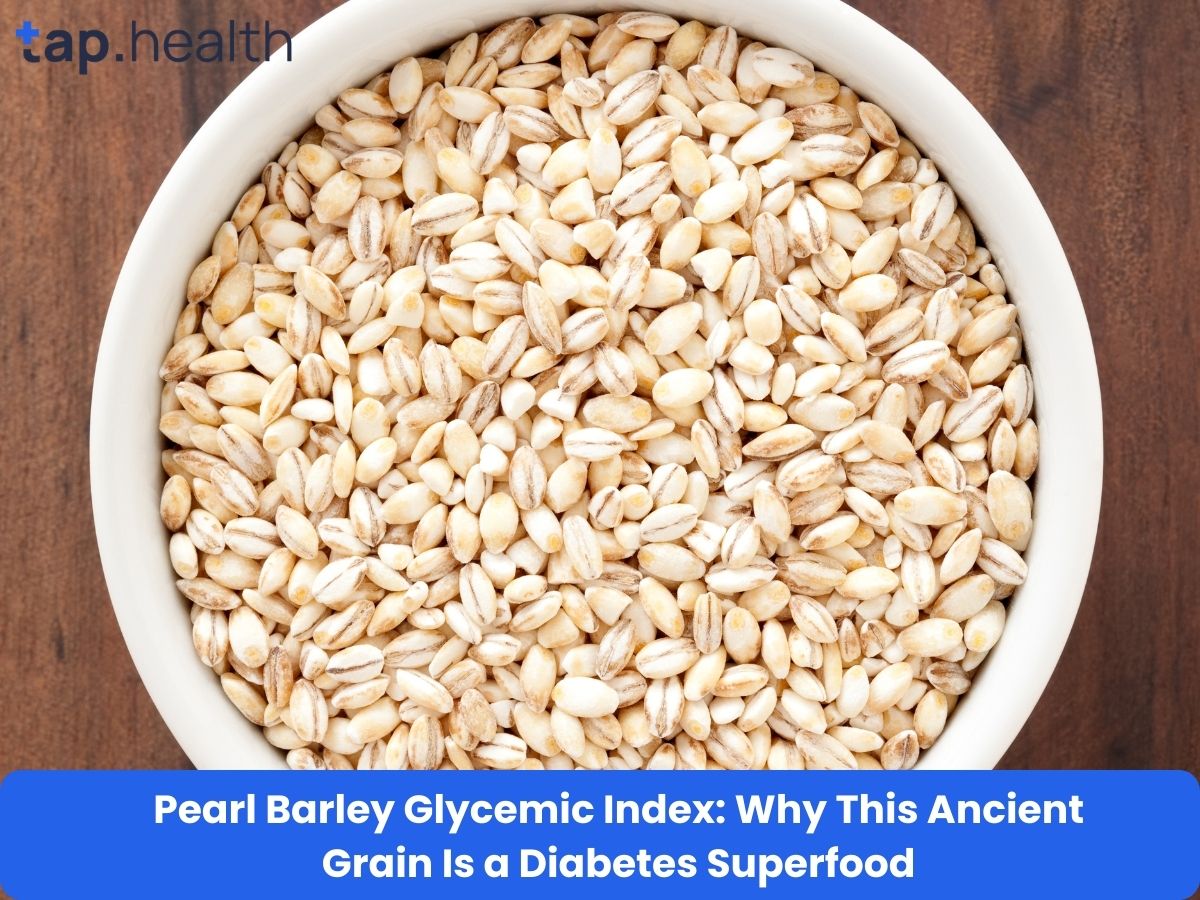Table of Contents
- Managing High Blood Pressure During Diabetic Pregnancy
- Diabetic Pregnancy: Controlling High Blood Pressure
- Hypertension in Diabetic Pregnancy: A Comprehensive Guide
- Lowering Blood Pressure During Diabetes Pregnancy: Expert Tips
- High Blood Pressure & Diabetes in Pregnancy: What You Need To Know
- Frequently Asked Questions
- References
Congratulations on your pregnancy! This is an exciting time, but if you’re also managing diabetes, you might have additional concerns, especially regarding your blood pressure. Managing high blood pressure during diabetes pregnancy presents unique challenges, but with the right knowledge and support, you can navigate this journey safely and confidently. This blog post will explore effective strategies for monitoring and controlling your blood pressure throughout your pregnancy, ensuring a healthy outcome for both you and your baby. We’ll cover practical tips, lifestyle adjustments, and the importance of regular communication with your healthcare team. Let’s get started!
Managing High Blood Pressure During Diabetic Pregnancy
Pregnancy with diabetes presents unique challenges, and managing high blood pressure is paramount for both mother and baby’s well-being, particularly in Indian and tropical countries where certain risk factors are prevalent. For women with diabetes, maintaining blood pressure below 140/90 mmHg is generally recommended, although some guidelines suggest aiming for a target below 130/80 mmHg. This stricter target reflects the increased risk of complications associated with higher blood pressure levels during pregnancy with diabetes.
Understanding the Risks
High blood pressure (hypertension) during diabetic pregnancy significantly increases the risk of premature birth, low birth weight, and other complications for the baby. For the mother, it elevates the risk of preeclampsia, gestational diabetes complications, and other pregnancy-related health issues. These risks are heightened in regions like India and other tropical countries due to factors like malnutrition, pre-existing health conditions, and limited access to quality healthcare.
Effective Management Strategies
Careful monitoring of blood pressure is crucial. Regular checkups with your doctor are essential to track your blood pressure and adjust medication or lifestyle changes as needed. Maintaining a healthy diet, rich in fruits and vegetables, and low in sodium, is critical. Regular, moderate exercise, approved by your doctor, plays a vital role in managing blood pressure. Stress reduction techniques like yoga and meditation can also contribute positively to blood pressure control. Remember to consult with your doctor before making any significant dietary or exercise changes during pregnancy.
Seeking Expert Care in India and Tropical Countries
Access to quality prenatal care is crucial. In India and other tropical countries, it’s vital to identify and engage with healthcare professionals experienced in managing high blood pressure during diabetic pregnancies. Don’t hesitate to seek immediate medical attention if you experience sudden increases in blood pressure or other concerning symptoms. Early detection and proactive management significantly improve the outcomes for both you and your baby. Regular communication with your doctor is key to a healthy pregnancy. For more information on natural ways to manage high blood pressure during pregnancy, you might find Natural Remedies to Manage High Blood Pressure in Pregnancy Safely helpful. Understanding the broader implications of hypertension during pregnancy is also important; Hypertension and Pregnancy: What You Need to Know provides a comprehensive overview.
Diabetic Pregnancy: Controlling High Blood Pressure
Managing high blood pressure during pregnancy with diabetes is crucial for both mother and baby’s health. In India, a concerning statistic reveals that over 60% of people with diabetes also experience hypertension. This alarmingly high rate highlights the critical need for effective management strategies, especially during pregnancy in tropical climates like those prevalent across India and other Southeast Asian nations. The added stress of pregnancy on the cardiovascular system can exacerbate existing hypertension, potentially leading to serious complications.
Understanding the Risks
High blood pressure (hypertension) during pregnancy, also known as gestational hypertension or preeclampsia when accompanied by proteinuria, poses significant risks for both the mother and the developing fetus. These risks are amplified in women with pre-existing diabetes. Poorly controlled blood pressure can lead to premature birth, low birth weight, and even fetal distress. For the mother, uncontrolled hypertension increases the risk of stroke, kidney damage, and other severe health problems. Regular monitoring and proactive management are essential.
Effective Management Strategies
Several strategies are vital in managing hypertension during diabetic pregnancy in tropical climates. These include adhering to a prescribed medication regimen, maintaining a healthy diet low in sodium and rich in fruits and vegetables, regular exercise as advised by your physician, and consistent monitoring of blood pressure and blood sugar levels. The high temperatures in these regions can further impact blood pressure, necessitating careful hydration and avoiding strenuous activity during peak heat hours. Consult your doctor regularly for personalized advice and adjustments to your treatment plan. Remember, proactive management is key to ensuring a healthy pregnancy outcome. Understanding the risks associated with Pregnancy Hypertension: Causes, Risks, and Safe Management – Tap Health is a crucial first step.
Seeking Expert Care
It’s crucial for pregnant women with diabetes in India and similar tropical regions to seek regular prenatal care from qualified healthcare professionals. Early detection and consistent monitoring are paramount in managing hypertension and mitigating potential risks. Don’t hesitate to reach out to your doctor or healthcare provider with any concerns. Your health and the health of your baby are of utmost importance. Furthermore, it’s important to be aware of the possibility of developing diabetes after pregnancy, as discussed in Can You Develop Diabetes After Pregnancy?
Hypertension in Diabetic Pregnancy: A Comprehensive Guide
Pregnancy with diabetes significantly increases the risk of developing hypertension, a dangerous condition for both mother and baby. This is particularly crucial in Indian and tropical countries where pre-existing health conditions and access to healthcare can be variable. The added stress of pregnancy on an already compromised system, especially for those with diabetes, can lead to severe complications. Nearly 30% of individuals with diabetes develop diabetic nephropathy (kidney disease), further increasing the risk of hypertension during pregnancy. Managing blood pressure effectively is therefore paramount.
Understanding the Risks
Hypertension during diabetic pregnancy can lead to serious complications like pre-eclampsia, gestational hypertension, and even premature birth. These complications can negatively impact the baby’s health and development. In regions with limited access to advanced medical facilities, the consequences can be more severe. Early detection and proactive management are key to minimizing these risks. Regular monitoring of blood pressure, blood sugar levels, and kidney function are essential throughout the pregnancy.
Managing High Blood Pressure
Effective management involves a combination of lifestyle changes and medical interventions. This includes following a strict diabetic diet, regular exercise (as advised by your doctor), stress management techniques, and adherence to prescribed medications. In Indian and tropical climates, staying hydrated is crucial, and dietary adjustments might need to reflect regional food availability and preferences. Regular check-ups with both a diabetologist and obstetrician are essential for personalized care and timely interventions. For more information on dietary choices, you may find our guide on Top Foods That Help Reduce Hypertension During Pregnancy helpful.
Seeking Support
Don’t hesitate to seek support from healthcare professionals, family, and community resources. Support groups and online forums dedicated to managing diabetes during pregnancy can provide valuable information and emotional support. Remember, early and consistent management is key to a healthy pregnancy. Consult your doctor immediately if you experience any concerning symptoms, such as severe headaches, blurred vision, or swelling in your face or hands. A proactive and informed approach to managing hypertension during diabetic pregnancy can significantly improve the chances of a healthy pregnancy and delivery. If you are also planning any travel during your pregnancy, consider reading our blog on Traveling with Diabetes: Essential Tips for a Safe & Healthy Journey for additional advice.
Lowering Blood Pressure During Diabetes Pregnancy: Expert Tips
Pregnancy with diabetes presents unique challenges, especially concerning blood pressure. Studies show women with diabetes have a 40% higher risk of heart disease compared to men with diabetes, highlighting the critical need for proactive blood pressure management during pregnancy. This increased risk underscores the importance of careful monitoring and effective strategies to maintain healthy blood pressure levels throughout gestation. In India and tropical countries, where access to healthcare can vary, these strategies become even more vital.
Dietary Adjustments for Blood Pressure Control
Maintaining a balanced diet is crucial. Focus on incorporating foods rich in potassium, like bananas and spinach, while limiting sodium intake. Traditional Indian cuisine, while delicious, often contains high levels of sodium. Consciously reducing salt and opting for fresh spices can significantly impact blood pressure. Regular consumption of foods low in saturated and trans fats, common in many processed foods, is also important. Remember, even small dietary changes can make a big difference.
Lifestyle Modifications for Optimal Health
Regular, moderate exercise is key. Aim for at least 30 minutes of physical activity most days of the week. Consult your doctor before starting any new exercise routine, tailoring it to your specific needs and limitations during pregnancy. Stress management techniques like yoga or meditation can also be highly beneficial in regulating blood pressure and overall well-being, particularly relevant in high-pressure environments common in many tropical regions. Adequate rest and sleep are equally important.
Regular Monitoring and Medical Guidance
Regular check-ups with your doctor or midwife are paramount. Consistent monitoring of blood pressure and blood sugar levels is crucial for early detection and management of any complications. Don’t hesitate to reach out to your healthcare provider with any concerns, no matter how small they may seem. Open communication is key to a healthy pregnancy. In India and other tropical countries, seeking advice from experienced healthcare professionals familiar with managing diabetes during pregnancy is essential. Early intervention is key to preventing complications and ensuring a healthy pregnancy outcome for both mother and child. Understanding blood sugar levels is also critical; for instance, you might find it helpful to read more about Is 250 Blood Sugar Level Normal After Eating During Pregnancy? or Is a 300 Blood Sugar Level Normal After Eating During Pregnancy? to better understand potential fluctuations.
High Blood Pressure & Diabetes in Pregnancy: What You Need to Know
Managing high blood pressure (hypertension) during pregnancy is always important—but when combined with diabetes, the risks for both mother and baby rise significantly. In India and other tropical countries, where diabetes and hypertension are common, understanding these risks is especially crucial.
Pregnant women with blood glucose levels consistently above 6.5% are diagnosed with gestational diabetes, which can worsen hypertension or even trigger it. Even women with prediabetes (5.7%–6.4%) face increased risks. That’s why early detection and proactive care are vital for a safe pregnancy.
Understanding the Risks
Hypertension during pregnancy in women with diabetes can lead to serious complications, such as:
-
Preeclampsia (high blood pressure plus protein in the urine)
-
Premature birth
-
Low birth weight
-
Fetal death in severe cases
These risks can be greater in tropical regions due to nutritional deficiencies and limited access to consistent healthcare. For instance, in India, prenatal care quality can vary widely—making regular monitoring of both blood sugar and blood pressure throughout pregnancy even more essential.
Practical Steps for Management
You can take meaningful steps to manage both conditions:
-
Follow a balanced diet: Focus on fresh fruits, vegetables, whole grains, and lean protein.
-
Stay active: Light to moderate exercise, as recommended by your doctor, helps regulate blood sugar and blood pressure.
-
Stick to medications: Take prescribed medicines exactly as directed.
-
Regular check-ups: Stay in close contact with both your obstetrician and diabetologist.
-
Seek family support: In Indian and tropical cultures, family involvement is key. Their support can help you maintain diet, treatment, and stress management routines.
Seeking Support in India and Tropical Countries
If you are pregnant and dealing with diabetes or hypertension, here’s what can help:
-
Get consistent prenatal care from qualified professionals.
-
Ask questions—don’t hesitate to voice concerns about diet, medication, or test results.
-
Join support groups—both local and online communities of pregnant women with diabetes offer valuable advice and emotional support.
Proactive care and consistent follow-up can greatly improve outcomes for both you and your baby.
Key Takeaway
High blood pressure and diabetes during pregnancy can be managed with the right approach. Early detection, careful monitoring, a balanced lifestyle, medical guidance, and emotional support all work together to ensure the best possible outcomes for mother and child.
Frequently Asked Questions on Managing High Blood Pressure During Diabetes Pregnancy
Q1. What are the risks of high blood pressure during diabetic pregnancy?
High blood pressure during diabetic pregnancy increases the risks of premature birth, low birth weight, preeclampsia, and other pregnancy complications, impacting both mother and baby.
Q2. How can I manage high blood pressure during diabetic pregnancy?
Effective management involves regular blood pressure monitoring, a healthy, low-sodium diet, moderate exercise, stress reduction techniques, and consistent prenatal care from experienced healthcare professionals. Medication adherence is crucial if prescribed by your doctor.
Q3. Why is managing high blood pressure especially important in India and tropical countries?
Risk factors for high blood pressure and diabetes are more prevalent in India and tropical countries, making effective management vital for positive pregnancy outcomes.
Q4. What role does prenatal care play in managing high blood pressure during pregnancy?
Seeking regular prenatal care from experienced healthcare providers is essential for early detection, proactive management, and personalized advice to address potential challenges and concerns throughout your pregnancy.
Q5. How can I ensure effective communication with my healthcare provider?
Regular communication with your healthcare provider is key. Don’t hesitate to ask questions, express concerns, and report any changes in your health or blood pressure readings. This open dialogue ensures optimal care and management.
References
- A Practical Guide to Integrated Type 2 Diabetes Care: https://www.hse.ie/eng/services/list/2/primarycare/east-coast-diabetes-service/management-of-type-2-diabetes/diabetes-and-pregnancy/icgp-guide-to-integrated-type-2.pdf
- Diabetes Mellitus: Understanding the Disease, Its Diagnosis, and Management Strategies in Present Scenario: https://www.ajol.info/index.php/ajbr/article/view/283152/266731



